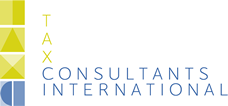As was already announced - the dividend withholding tax legislation will be amended on a number of points, being an extension of dividend withholding tax to basically also apply to cooperatives. The dividend withholding tax exemption is to be expanded to include tax treaties with non-EU/EEA countries. The proposal also contains specific rules on interest held in Dutch BV's/NVs or holding cooperatives through hybrid entities. Finally, an anti-abuse provision will be added.
Holding cooperatives
Following the announced changes, holding cooperatives will be required to withhold dividend tax if one or more members are entitled to at least 5% of the profit and/or liquidation proceeds. A holding cooperative would be defined as a cooperative when at least 70% of the activities comprise of holding of participations or direct or indirect financing of affiliated entities. An exemption to this rule applies for holding cooperatives with sufficient activities, also referred to as 'substance', such as an own office with qualified employees that are engaged in managing the participations and financing.
Exemption dividend withholding tax
The exemption for withholding dividend tax at source is broadened for qualifying interest in BV/NV and holding cooperatives (and other Dutch entities) if the parent companies is tax resident in the EU, EEA or a third country that has concluded a tax treaty with the Netherlands that contains "qualifying provisions" relating to dividend withholding tax. For this exemption it is required that the interest in the Dutch entity would have to be an investment that would qualify for the Dutch participation exemption or participation credit if the recipient were resident in the Netherlands. Also where a treaty provided for a reduction to for example a 5% dividend withholding tax rate, the full exemption of dividend withholding tax will apply under this broadened scope. Do note that anti-abuse provisions are introduced (see hereafter).
Anti-abuse provision
The aforementioned exemption does not apply, if the parent company holds the interest in the Dutch entity with the main purpose (or one of the main purposes) of avoiding Dutch dividend withholding ("subjective test"), and if so, it should be assessed whether the structure or transaction is considered artificial ("objective test"). A structure and transaction are not (deemed) artificial if it has been set-up based on valid business reasons that reflect economic reality. Substance requirements will be amended. In addition to the current substance requirements for obtaining an advance tax ruling, a foreign intermediate holding company would be required to have wage costs of at least EUR 100,000 relating to either its own or hired group personnel and it would need to have an office and premises and assets of its own, both being used for its intermediary holding function. The new legislation would apply as of 1 January 2018 with a three month transitional period in relation to the additional substance requirements.
Fiscal Investment Institution excluded from withholding exemption
Fiscal Investment Institutions (fiscale beleggingsinstellingen - FBIs) are excluded from the proposed exemption to apply as of 1 January 2018 and therefore the current settlement method, i.e. the possibility to settle their dividend withholding tax and foreign withholding tax withheld up to certain amounts with the dividend withholding tax to be paid upon a distribution by the fiscal investment institution.
Corporate income tax
Adjustment limitation of interest deduction / anti-base erosion regulation
The limitation of interest deduction article 10a Corporate Income Tax has a so-called double motive test, whereby the valid business reason of the transaction and the debt must be demonstrated in order to deduct the interest. Following a number of Supreme Court rulings, the law proposal includes an additional requirement that also for a third party debt the valid business reason test must be met in order to be able to deduct the interest.
Deductibility of losses on debts and fiscal unity
In principle a debt receivable can be written down against the profit when the value of the debt receivable drips below nominal value. This general implies that a debtor is in a loss position. In specific fiscal unity situations where a creditor of the loan forms part of a fiscal unity for corporate income tax purposes and the write-down loss relates to a loss incurred by another company included in the fiscal unity, in fact the loss is taken (deducted from the profit) twice. The proposed amendment of the law will only permit deduction once in such situations.
Liquidation loss regulation
The liquidation loss regulation will be amended on two matters: (1) in conjunction with the aforementioned double loss deduction, also the law is amended to prevent double loss deduction through the liquidation loss rules, and (2) relating to deconsolidation of intermediate holding companies prior to liquidation. By deconsolidation of a subsidiary (intermediate holding company), in certain situations a high(er) liquidation loss can be claimed because the subsidiary is still valued at cost price in the books whereas the fair value is substantially lower. After amendment of the law, the fair value must be taken into account for the subsidiary/intermediate holding company.
Internal fees between fiscal unity with permanent establishement
The regulations for internal fees/calculation of profit within a fiscal unity with a foregin permanent establishment will be amended. Based on the current law, there is a mismatch between calculation of world-wide profits and the calculation of the exemption for the double tax relief, which effectively resulted in a double deduction of such internal fees. A similar approach has already applied to internal borrowing costs for some time and it is now proposed to extent the regulation on financing costs to (other) internal user fees, such as royalty payments, rental and lease payments.
County-by-Country Reporting
Because not all countries have adopted the Country-by-Country reporting requirements at the same time, the OECD has determined that countries can allow the country report still to be filed by the ultimate parent company entity in the country in which it is established for tax purposes. Dutch legislation is now amended to similarly allow for such filing.


.png)

